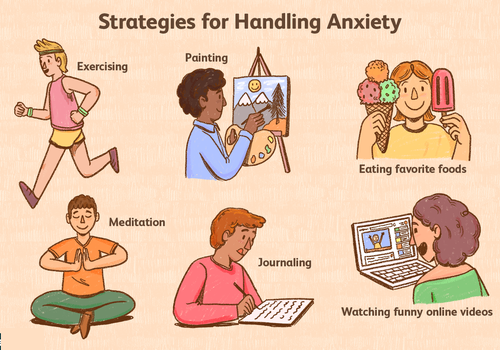By An Intern

Aggressive behavior is an action taken or performed to harm others physically or emotionally. It can be physical (hitting, biting) or verbal (calling names, saying unpleasant things) aggression. Aggression in kids is not uncommon and is often considered a part of normal development. Examples of aggressive behavior in children are biting, hitting, kicking, bullying, breaking things, destroying property, etc. There are several underlying factors like displeasing life events, medical conditions, or mental health issues which causes aggressive behaviour in children. Parents play a vital role in controlling aggression in their children as they are the closest people in their life. They can control aggression in their child with better communication, good strategies, and love. Communication is very important in understanding and controlling the child. The first step towards managing aggressive behavior is identifying the underlying cause and type of aggression the child displays.
Types of Aggression:
There are four types of aggressive usually seen in children:
1. Accidental Aggression: As the name suggests, accidental aggression is just an accident and is not done purposely. It is the display of action without the intention of harming others. For example, stepping on someone’s foot while playing.
2. Expressive Aggression: It is committed because the act feels good. There is no intention to harm someone. For example, hitting or kicking someone while playing tag could seem fun to the child but they may not realise that it could hurt others.
3. Instrumental Aggression: It occurs when children fight over objects, territory, or rights, and in the process, someone gets hurt. This aggression is shown to gain control of an object. For example, two children fighting over a toy.
4. Hostile Aggression: It is done purposely to harm others physically or emotionally. For example, bullying by calling names or ignoring someone.

Causes of Aggression in Children:
It is important to first find out the cause of aggression to successfully manage it in children. Evidence suggests several factors can contribute to aggressive behavior:
1. Prenatal Factors: Violence and aggression towards pregnant women cause unfavorable changes in the fetus’ brain and may eventually lead to temperament issues later in the child’s life, causing them to display more aggression than usual. Maternal prenatal smoking and alcohol use may cause babies to develop aggressive traits and hyperactivity behavior later in childhood.
2. Psychological Factors: Children can be aggressive due to a mental disorder or illness. Aggressive behavior sometimes happens as a symptom of a certain mental illness, including:
● Psychotic disorders, e.g. schizophrenia
● Mood disorders, e.g. bipolar disorder
● Conduct disorders, e.g. attention deficit hyperactivity disorder (ADHD), oppositional defiant disorder (ODD)
● Autism
3. Environmental Factors: Environment plays an important role for aggression in children such as:
● Living in a violent neighborhood
● Aggressive acts are seen in the media
● Witnessing violence
● Experiencing violence
● Having aggressive peers
4. Familial Factors: Children learn how to behave by observing their family members so the way they are treated at home and the behavior their family members display significantly influence their temperament. The following familial factors influence aggression in children:
● Disturbed family dynamics: quarrels, aggression, and acts of violence within family members.
● Children who are constantly controlled, shamed, and punished at home often develop aggression.
● Neglectful parents and parents with mental illness negatively impact the child.

Strategies to deal with Aggressive Behavior in Children:
Once the cause and type of aggression are identified, the following interventions can be used:
● First of all, calm down. Parents need to control their temper because children can’t. Parents need to understand that children have yet to master self-control. They need to be very patient to handle their kid’s aggressive behavior. Children are great observers, they learn to manage their anger or other emotions by observing how their parents manage their own. Responding angrily or punishing them makes matters worse.
● Do not immediately speak to the child right after they act aggressively. When children become aggressive, our thoughts don’t get through them, so allow them to cool off and then speak to them gently with a lower voice. Make them fully understand that what they did is wrong and should not happen in the future.
● Praise your child’s good behavior, even the simple ones. Praising or rewarding children for displaying appropriate behavior or when they follow rules will make it more likely to happen in the future.
● Don’t give in to temper tantrums or aggressive outbursts. This reinforces the inappropriate behavior. Children are more likely to repeat such behavior because doing so gets them whatever they want. Firmly refuse your child’s demands. Instead, politely reassure them that whatever you do is for their good.
● Set ground rules and be clear about the consequences of not following them. Teach kids that aggression is wrong and harming others in any way is unacceptable. Remember to repeat this rule numerous times so that they remember what not to do.
● Be consistent in the way you respond to a kid’s aggressive behavior to avoid confusing the child on how to behave.
● Teach them to use words. Often kids display aggressive behaviour simply because they lack the communication skills necessary to help them through a stressful situation.
● Parents should monitor their child’s activities. They should make sure that their child isn’t exposed to violence and aggressive acts through television or other mass media.
The above-listed strategies can be used to manage aggressive behavior in children. However, aggression caused due to psychological factors requires professional help. And if the parents can no longer handle their aggressive child then they may seek help from psychologists or counsellors.
For any information you can contact us at contactus@heart2mind.com or +91-8595752152.



